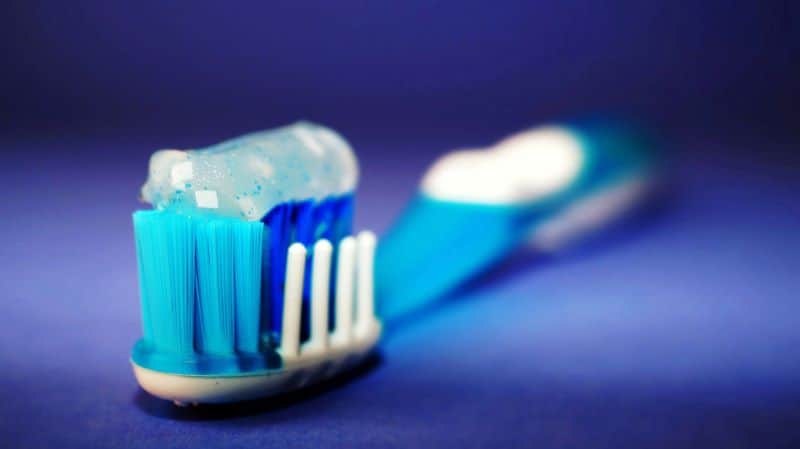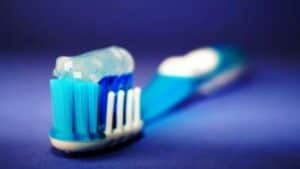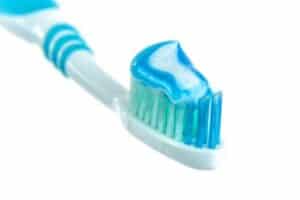
29 Feb The Surprising Effects of Sleep on Your Dental Hygiene
The Surprising Effects of Sleep on Your Dental Hygiene
Welcome to an enlightening journey where we uncover the lesser-known aspects of how sleep significantly influences your dental hygiene. Sleep, being a cornerstone of overall well-being, extends its impact to various facets of health, with dental hygiene being no exception. In this article, we will delve into 15 engaging sections, exploring the intricate relationship between a good night’s sleep and maintaining a healthy smile. Embark on this informative exploration to discover the nuanced connections that weave through the realms of sleep and oral well-being, unveiling secrets to a brighter, healthier smile.
Understanding the Sleep-Oral Health Connection
In this section, we unravel the intricate connection between quality sleep and dental hygiene. Beyond the duration of sleep, the quality of your sleep plays a pivotal role in influencing oral health. Poor sleep patterns can disrupt the body’s natural mechanisms for maintaining dental hygiene, making it crucial to strike the right balance for optimal oral well-being.
Saliva Production and Dental Health
During sleep, the natural decrease in saliva production can significantly impact dental health. Saliva serves a crucial role in maintaining oral well-being by neutralizing acids produced by bacteria, washing away harmful microorganisms, and forming a protective barrier for teeth. When saliva levels drop due to insufficient sleep, it creates an environment conducive to bacterial growth, potentially leading to cavities and gum issues. Prioritizing quality sleep supports adequate saliva flow, contributing to a balanced and healthy oral environment.
Plaque Formation and Sleep Patterns
The overnight period is pivotal in regulating plaque formation, a sticky film of bacteria that can accumulate on teeth. Consistent and quality sleep patterns play a crucial role in preventing excessive plaque buildup. With optimal sleep, the body can effectively manage the production of plaque, reducing the risk of cavities and gum problems. A well-established sleep routine supports better oral hygiene by mitigating the conditions that contribute to plaque formation during the night.

Teeth Grinding (Bruxism) and Sleep Quality
Bruxism, characterized by teeth grinding during sleep, poses significant risks to dental health. It can lead to tooth wear, fractures, and jaw pain. Managing sleep quality is essential in addressing bruxism, as poor sleep patterns and increased stress levels are often associated with this nocturnal habit. By prioritizing restful sleep and employing stress-reducing strategies, individuals can mitigate the detrimental effects of bruxism, safeguarding the integrity of their teeth.
Gum Health and Immune System
Quality sleep plays a crucial role in supporting a robust immune system, which, in turn, contributes to overall gum health. Adequate rest enhances the body’s ability to fend off infections and diseases, reducing susceptibility to gum-related issues such as gingivitis and periodontitis. By prioritizing quality sleep, individuals empower their immune system to actively protect and maintain the health of their gums, preventing the onset of common oral health problems.
Consistency in Dental Care Routine
Establishing a nightly oral care routine is more achievable with consistent and quality sleep. Individuals with irregular sleep patterns may find it challenging to adhere to proper dental care practices, leading to an increased risk of oral health issues. Maintaining a routine that includes regular brushing, flossing, and other recommended oral hygiene habits becomes more sustainable with prioritized and restful sleep. Quality sleep not only supports the physical aspects of dental care but also enhances the mental discipline needed to maintain a consistent routine for optimal oral health.
Enamel Strength
Quality sleep is paramount in the preservation of enamel strength, serving as the protective outer layer of our teeth. Sufficient sleep aids in maintaining the integrity of enamel through the essential process of remineralization that occurs during rest. This intricate repair mechanism ensures the redeposition of vital minerals, enhancing the structural resilience of enamel. In contrast, poor sleep patterns can compromise enamel integrity, rendering teeth more susceptible to sensitivity and decay. Insufficient sleep disrupts the natural remineralization process, potentially leading to weakened enamel and increased vulnerability to cavities. To safeguard enamel strength, prioritizing consistent, high-quality sleep is essential. Establishing a bedtime routine, creating a comfortable sleep environment, and addressing factors that may disrupt sleep contribute to overall oral health by promoting the longevity and resilience of enamel.

Reduced Inflammation
Quality sleep emerges as a natural ally in the battle against inflammation, extending its influence to the gums and overall oral health. Adequate sleep regulates the body’s inflammatory responses, playing a preventive role in the development of chronic inflammation in the gums, a common precursor to periodontal diseases. The connection between sleep and inflammation lies in the heightened activity of the immune system during rest, addressing inflammatory processes and promoting healing. This contributes to the body’s natural anti-inflammatory mechanisms, reducing the risk of gum inflammation and associated complications. Insufficient or poor-quality sleep, on the other hand, can disrupt these immune responses, potentially leading to heightened inflammation in the gums. Cultivating healthy sleep habits, such as prioritizing sleep hygiene, managing stress, and establishing a regular sleep schedule, becomes essential to fortify the body’s defenses against gum inflammation, fostering both oral and systemic well-being.
FAQs
Can Lack of Sleep Cause Cavities?
Yes, a lack of sleep can indeed contribute to the formation of cavities. When the body is deprived of sufficient sleep, it can impact the immune system’s effectiveness in fighting bacteria and maintaining overall oral health. Saliva, which plays a crucial role in neutralizing acids and preventing the growth of harmful bacteria in the mouth, is also affected by insufficient sleep. The reduction in saliva production can lead to a dry mouth, creating an environment conducive to the proliferation of cavity-causing bacteria. Therefore, addressing sleep issues is not only essential for overall well-being but can also positively influence oral health, helping to prevent the development of cavities.
Is Snoring Bad for Dental Health?
Snoring itself may not be directly harmful to dental health, but it can contribute to certain oral issues. Persistent snoring often leads to a dry mouth, reducing saliva production. Saliva plays a crucial role in maintaining oral health by neutralizing acids, washing away bacteria, and aiding in the remineralization of teeth. A dry mouth environment can create conditions conducive to bacterial growth, potentially leading to tooth decay and gum issues. Therefore, while snoring may not directly harm dental health, addressing snoring can have positive implications for maintaining optimal oral well-being.
Does Sleeping Late Affect Gums?
Yes, consistently sleeping late can affect your gums. Irregular sleep patterns or insufficient sleep can compromise the body’s ability to maintain optimal oral health. The immune system, which plays a crucial role in protecting the gums from infections and diseases, may be weakened with inadequate sleep. Additionally, staying up late may lead to poor oral hygiene habits, such as neglecting regular brushing and flossing, further increasing the risk of gum issues. To promote gum health, it’s crucial to maintain a consistent sleep schedule and prioritize good oral care practices, even if bedtime is extended occasionally.

How Does Stress Impact Dental Health During Sleep?
Stress can significantly impact dental health during sleep. The body’s response to stress, both physical and psychological, can contribute to oral health issues. For instance, stress may lead to teeth grinding (bruxism), a common nocturnal habit that can cause wear and tear on the teeth and strain the jaw muscles. Additionally, stress is associated with an increased likelihood of neglecting oral hygiene practices, such as regular brushing and flossing, which can elevate the risk of cavities and gum problems. Managing stress through relaxation techniques or seeking professional support not only improves overall well-being but also positively influences dental health during sleep.
Are There Recommended Sleeping Positions for Minimizing Dental Issues?
While there isn’t a specific “one-size-fits-all” sleeping position for minimizing dental issues, certain positions may be more favorable for oral health. Sleeping on your back is often recommended, as it reduces the likelihood of facial pressure and minimizes contact between teeth. This position also helps prevent issues like teeth grinding (bruxism) and jaw strain. However, individual preferences and comfort play a role, so finding a position that allows for restful sleep while avoiding excessive pressure on the jaw or teeth is essential. If concerned about dental issues, consulting with a healthcare professional or dentist for personalized advice is recommended.
In Conclusion
Connecting Sleep, Dental Health, and Overall Well-Being
In this comprehensive section, tie together the threads of sleep, dental health, and overall well-being. Understand the holistic impact of quality sleep on your life and embrace practices for a healthier you. The interconnectedness of these elements underscores the importance of prioritizing sleep for overall well-being and dental health.
These sections collectively form a comprehensive exploration of the surprising effects of sleep on your dental hygiene, shedding light on the lesser-known aspects that contribute to a radiant smile and improved overall well-being.


Sorry, the comment form is closed at this time.